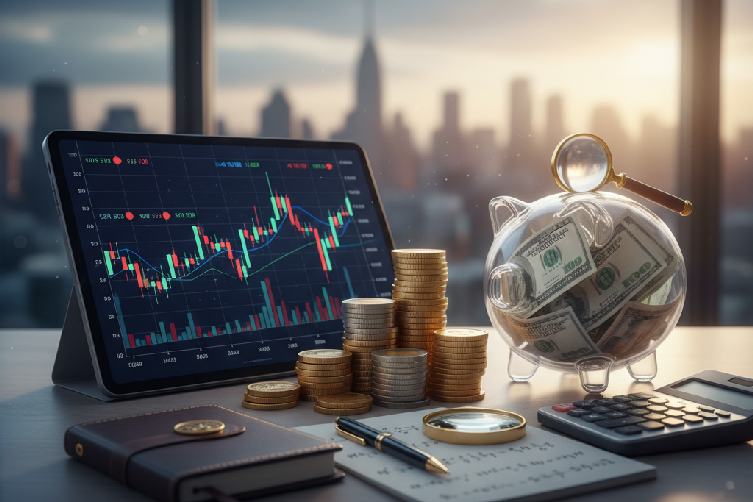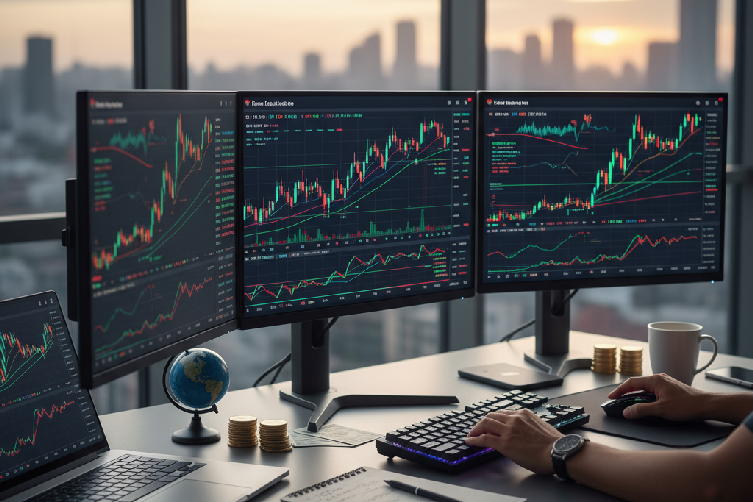How Much Capital Do You Need for Day Trading?

Day trading involves buying and selling financial instruments like currencies, stocks, or options within a single trading day. The goal is to profit from small price movements. Understanding the capital requirements is crucial before you start.
In some regulatory environments, an account that performs four or more day trades within five business days is labeled a “pattern day trader.” These accounts often face higher limitations and margin requirements.
Specifically, a pattern day trader account typically needs to maintain a minimum equity level of $25,000. It’s also subject to a margin requirement of 25% of the account’s total market value. Without this $25,000 equity, these accounts are generally limited to three-day transactions within a five-day period.
What Exactly is Day Trading?
Day trading has become a hot topic, often debated between those who see it as a path to quick wealth and those who have suffered significant losses. It’s vital to approach it with caution.
We strongly advise against day trading just for fun, especially when dealing with leveraged products or investment strategies. Regardless of your experience level, it’s a challenging and risky form of investment. You shouldn’t engage in day trading unless you fully grasp the inherent risks and the financial implications of leveraged investing methods, such as using options or trading on margin.

The core of day trading is buying and selling assets swiftly to capitalize on rapid market fluctuations. Traders often use leverage or borrow money to increase their buying power, which significantly amplifies the risk involved. This fast-paced, speculative approach demands constant market monitoring and attention to news.
Professional day traders typically possess extensive expertise in market dynamics, risks, various financial products, and trading techniques. It’s essential to be fully aware of these significant risks before you begin trading.
Getting Started with Day Trading
Starting with day trading on a platform like FXNX requires careful preparation and strategy. Here are key areas to focus on:
1. Develop Deep Market Expertise
While strong technical analysis skills are beneficial, a profound understanding of the markets, sectors, and assets you trade is equally important. This includes knowing the main drivers, risks, regulations, and dynamics of each market.
Experienced day traders often develop an intuitive sense for market behavior, allowing them to spot emerging trends and patterns. This comes from extensive training, research, and diligent market observation. Rather than trying to trade every market, it’s more effective to specialize in one or a few related areas. Markets are constantly evolving, and specialized knowledge gives you an edge in capitalizing on minor changes.
2. Stay Informed and Manage Risk Responsibly
Keeping up with news, economic data, and new trading strategies is crucial. On the FXNX platform, you’ll find tools to help you stay informed. It’s also paramount to ensure you have adequate risk capital.
Since day trading is inherently risky, you should only trade with funds you can genuinely afford to lose. Many new traders make the mistake of depleting their entire trading account.
3. Maintain Adequate Trading Capital to Manage Risk and Emotions
The amount of capital needed varies based on the assets and trading methods used. More volatile markets and higher leverage typically require larger accounts to withstand drawdowns. Sufficient capital allows traders to size their positions appropriately, preventing them from being forced out of trades by sudden price shifts or margin calls. This, in turn, helps keep emotions from dictating trading decisions. Additionally, meeting minimum account balance regulations is a critical aspect for day traders.
4. Ensuring Adequate Risk Funds
As mentioned, day trading carries a high degree of risk. It’s essential to only use capital that you are prepared to lose. A common pitfall is wiping out an entire trading account. The specific cash amount required will depend on the assets you trade and your chosen trading strategy. In more volatile markets or when utilizing more leverage, larger accounts are necessary to absorb potential losses. Adequate capital not only helps manage risk but also prevents emotional trading, as you won’t be as easily swayed by temporary market movements or margin call warnings on a trusted FX trading platform like FXNX.
Leave a Reply